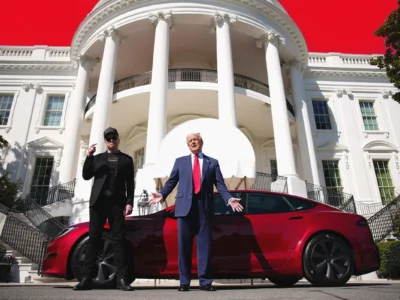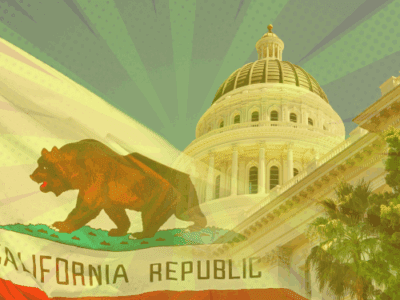Whatever Happened to Environmental Politics?

Mayor Bloomberg’s endorsement of President Obama on climate-change grounds is depressing because it is so surprising. It tells us something quite bleak that 1) someone had to make clear the relevance of climate to Hurricane Sandy; and 2) someone doing so came as a shock to people. Indeed, through the campaign, climate has been essentially ignored as a political issue. Why is that?
Obviously, the reason is complicated, and much of it concerns the Great Recession. In such circumstances, environmental issues will often take a back seat. But not always. Congress reauthorized the Clean Air Act in 1990, during the middle of a recession. Instead, we need to frankly admit that environnental organizations have not done an effective job at building a political constituency for saving the planet.
This observation hardly implies that major environmental organizations have been ineffective. Far from it. Most importantly from a law professor’s perspective, organizations like NRDC, EDF, and CBD have conducted an enormously effective legal strategy, from blocking many of the Bush Administration’s most egregious attempts at despoiling the environment to preventing the licensing and expansion of coal-fired power plants. And they do superb research work.

But the environment has ceased to be a potent political force in the United States. In the early 1970’s, Richard Nixon and Senator Edmund Muskie (whom everyone assumed would the Democratic nominee in 1972), competed vigorously as to who could be seen as a better environmental protector. It’s almost impossible to imagine that now.
So what happened? Here are a few tenative ideas:
1) Environmental organizations do a poor job of grass-roots organizing. With the important exception of the Sierra Club, environmental organizations do not have local chapters. I am a member of the Natural Resources Defense Council and the Environmental Defense Fund, but there is no Los Angeles chapter. There are no armies of door-knockers and GOTV people present in congressional districts such that legislators realize that developing strong alliances with them could mean the difference in marginal races both on the state and federal levels.
2) Electoral politics is not seen as a primary activity in the environmental movement. Environmental organizations stress issue advocacy — climate, Keystone XL, ANWR (always ANWR) — and urge their members to “make your voice heard” in the halls of power. But they do not work at getting people elected to those halls in the first place. For more than 30 years, evangelical Christians have been organizing to get their members on local school boards, city councils, and state legislatues. That isn’t what environmental organizations generally do. I am a member of my local Sierra Club chapter, and it is fair to say that while local political organizing is one potential activity among others, it is not stressed by the chapter.
3) The Republican Party’s rejection of science and environmentalism has undermined environmentalism’s political leverage. My previous analysis has ignored the League of Conservation Voters (LCV), which actually does focus on electoral politics. But LCV’s strategy has failed, for reasons beyond its control: the Republican Party has decided to reject science — which forms a crucial part of environmentalism — as a matter of principle. This has upended LCV’s principal political strategy, i.e. support environmentalists in both parties as a way of pushing environmental legislation. The idea, I think, is that LCV can say, “if you don’t support us in this campaign, we will back your opponent, who also has a pretty good record.” But with the current GOP, that will never be the case. What exactly are environmentalists supposed to do when President Obama makes the horrible decision on ozone regulations; threaten to walk and support Mitt Romney?
4) Many if not most pro-environmental voters embrace it as one of a cluster of issues: their vote does not ride on environmental issues. The National Rifle Association is powerful because even though its membership is relatively small, it has a small number of people in dozen of swing congressional districts who will vote on guns and guns alone. Maybe that’s only 2% of the electorate, but that 2% will make the difference. I seriously doubt that environmental voters are the same way. They won’t oppose, say, a pro-choice candidate with a bad environmental record, because they will like his or her record on choice.
5) Donors to environmental causes are uninterested in political organizing. At least so I hear. And no, this isn’t about 501(c)(3) status: there are lots of ways around that if you think through it. Many voter registrations organizations have tax-exempt status. But political organizing requires “patient capital”. It could take years to pull off, and requires a whole lot of false starts, small victories, bigger defeats, trial and error, identifying voters, etc. etc. This is a familiar story to anyone in progressive politics: the Right had a series of foundations that knew what they wanted and were prepare to invest in it for years. There are no counterparts on the Left, and “mainstream” foundations want The Next Big Thing, Which Will Of Course Become Self-Sustaining In Three Years.
These are formidable problems. In the coming weeks, I will try to write a little on how the environmental movement might try to overcome them. But I can’t say that I have particularly innovative or brilliant answers. If there were solutions out there, someone much more savvy than I am would have already put them together.
Reader Comments
8 Replies to “Whatever Happened to Environmental Politics?”
Comments are closed.







Jonathan — you’ve made some excellent points.
One solution is to simply start engaging in electoral politics with environmental groups that do election work. See how you like it.
I currently serve as President of the Los Angeles League of Conservation Voters. This year’s budget is $90k which we will spend to elect environmental candidates in some of LA County’s 88 cities. Candidly, I wish we had twenty times the amount — then we could launch numerous IEs on behalf of green candidates.
There are also ways to gain influence without money. For example, on December 15, the League is hosting a mayoral debate (at the Japan America Theater) to be aired live on KABC-TV. Many thousands of Angeleno voters will watch the debate. On April 1, my other organization, Climate Resolve, is hosting a candidate forum for LA’s contested council seats and citywide races. After the event, we will quickly produce and release YouTube videos featuring candidate views on the issues.
Some enviros are already in the trenches. I suggest less hand-wringing . . . more rolling of sleeves.
Jonathan — you’ve made some excellent points.
One solution is to simply start engaging in electoral politics with environmental groups that do election work. See how you like it.
I currently serve as President of the Los Angeles League of Conservation Voters. This year’s budget is $90k which we will spend to elect environmental candidates in some of LA County’s 88 cities. Candidly, I wish we had twenty times the amount — then we could launch numerous IEs on behalf of green candidates.
There are also ways to gain influence without money. For example, on December 15, the League is hosting a mayoral debate (at the Japan America Theater) to be aired live on KABC-TV. Many thousands of Angeleno voters will watch the debate. On April 1, my other organization, Climate Resolve, is hosting a candidate forum for LA’s contested council seats and citywide races. After the event, we will quickly produce and release YouTube videos featuring candidate views on the issues.
Some enviros are already in the trenches. I suggest less hand-wringing . . . more rolling of sleeves.
Thanks, Jon; clearly, the work that you have done at LA LCV has been 1) enormously productive; and 2) extremely rare in the enviromental movement. Put another way, we need more LCVs in places that are a little less environmentally-friendly to begin with (although the work of people like yourself, Mark Gold, Denny Zane, etc. is a big why LA is such a politically Green city in the first place).
How about rolling up our sleeves and starting an LCV in a purple region?
Thanks, Jon; clearly, the work that you have done at LA LCV has been 1) enormously productive; and 2) extremely rare in the enviromental movement. Put another way, we need more LCVs in places that are a little less environmentally-friendly to begin with (although the work of people like yourself, Mark Gold, Denny Zane, etc. is a big why LA is such a politically Green city in the first place).
How about rolling up our sleeves and starting an LCV in a purple region?
Reblogged this on Standard Climate.
Reblogged this on Standard Climate.
Environmentalists need to provide a path to a sustainable economy for the planet. Currently there are only two reliable, workable choices for generating electricity –
Use fossil fueles
Use nuclear power
Renewables alone cannot provide reliable electrical power. However, the Environmental community strongly opposes nuclear power and has opposed investing in R&D to develop safer / safer nuclear power.
A focus on Energy Efficiency works fine for developed countries but poor countries with a low per capita consumption of electricity will not accept total caps on electricity consumption. Note that poor countries waste energy and would certainly benefit conservation measures.
Environmentalists should also support R&D to increase the amount of electricity generated by renewable sources keeping the total system in mind which would include electricity storage, power lines, a smart electricity grid etc.
Also on Transportation there are other, better alternatives to High Speed Rail.
Finally, Environmentalists have been pretty callous about job losses suffered by low income, less educated members of the society from environmental regulations and free trade.
Environmentalists need to provide a path to a sustainable economy for the planet. Currently there are only two reliable, workable choices for generating electricity –
Use fossil fueles
Use nuclear power
Renewables alone cannot provide reliable electrical power. However, the Environmental community strongly opposes nuclear power and has opposed investing in R&D to develop safer / safer nuclear power.
A focus on Energy Efficiency works fine for developed countries but poor countries with a low per capita consumption of electricity will not accept total caps on electricity consumption. Note that poor countries waste energy and would certainly benefit conservation measures.
Environmentalists should also support R&D to increase the amount of electricity generated by renewable sources keeping the total system in mind which would include electricity storage, power lines, a smart electricity grid etc.
Also on Transportation there are other, better alternatives to High Speed Rail.
Finally, Environmentalists have been pretty callous about job losses suffered by low income, less educated members of the society from environmental regulations and free trade.